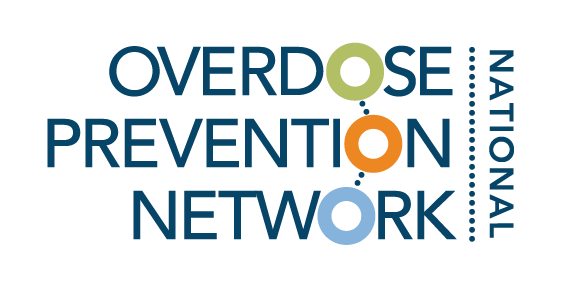
Resource Library
Toolkits, guides, and other resources vetted by experts in overdose prevention.
Filter by category and tags, or search by keyword (ex. COVID-19, harm reduction).
Let’s Start Talking Booklet
the Let’s Talk and Let’s Start Talking booklets that OD Free Marin developed to support caregivers, parents, and families in discussing overdose prevention. It also offers information about the teen brain, how much they carry mentally, and how to can best support them.
The New Drug Talk: Connect to Protect Flyer
A flyer for the The New Drug Talk Connect to Protect on how to talk to kids about fentanyl. It is a two-sided flyer, with one side in English and the other Spanish.
The New Drug Talk: Connect to Protect Toolkit
This toolkit provides you with content to amplify the New Drug Talk message and includes: resources to share on social media, messaging guidelines, and draft email outreach.
COPN Accelerator 4.0 Case Studies: Health Equity Strategies in Overdose Prevention
What steps can communities take to incorporate health equity in overdose prevention? The following summary provides concrete examples of thoughtful approaches to applying health equity in overdose prevention at the local level to address rising rates of overdose. Case studies were drawn from overdose prevention coalitions participating in the California Overdose Prevention Network (COPN) Accelerator 4.0 Program. These can serve as models for other coalitions and organizations across the country.
ADAPT: Cultivating Prevention Videos
A Division for Advancing Prevention and Treatment (ADAPT) supports the National High Intensity Drug Trafficking Area (HIDTA) Program by operationalizing the National HIDTA Prevention Strategy. ADAPT and HIDTA has created curriculum for implementing and evaluating substance use prevention practices within communities and has created videos to assist communities with keeping up to date with advances in prevention science. Their video library has s variety of trainings and technical webinars to cultivate, nurture, and support implementation of their prevention programming and curriculum.
ADAPT: Prevention Intervention Resource Center
The National High Intensity Drug Trafficking Area (HIDTA) Program has developed the Prevention Intervention Resource Center (PIRC). PIRC serves as a repository for publicly available resources for HIDTA communities to advance their evidence-based prevention programming. They have free curriculum available that includes: Sharing Substance-Related Information with Youth 11-18: Integrating the Best Available Evidence to Prevent Unintended Harm, Developing a Communications Plan, Developing Messaging Messaging through Mass Media, and so much more.
Focus on Prevention: Strategies and Programs to Prevent Substance Use
The U.S. Department of Health and Human Services(HHS), Substance Abuse and Mental Health Services Administration (SAMHSA), has developed this guide as a starting point to help a wide range of groups and communities move from concerns about substance use to proven and practical solutions. This guide offers brief, easy-to-read information that organizations can use to plan and deliver prevention strategies in a wide array of settings, through a variety of methods.
Overdose Lifeline
The Overdose Lifeline is a non profit overdose prevention organization based in Indiana that has informational pages on harm reduction and also has free youth focused educational programs like Aaron's Place: Exchange and Camp Mariposa.
Operation Prevention
The DEA has joined forces with Discovery Education to provide no-cost online tools that support every member of the community with the power of prevention. Help kickstart life-saving conversations today with standards-aligned English & Spanish-language resources for students in grades 3-12, plus additional resources designed for educators, families, and professionals.
SAMHSA Youth Substance Use Prevention Month and Substance Misuse Prevention Month Toolkit
In the month of October, we focus on youth substance use prevention and substance misuse prevention. 2023 marks the 10th anniversary of the "Talk.They Hear You." campaign. Prevention efforts enhance protective factors and minimize risks in individuals, families, schools, communities, and society at large. Extensive research and community-based experiences over the years affirm the effectiveness of prevention strategies, see the toolkit for more information, campaign materials, and more.
Substance Use Prevention Resources for Adult Role Models
Adult role models have an essential role on the growth and development of youth. They help guide youth to make healthy and informed decisions. Positive role models are protective social factors that promote youth health and well-being, and may reduce the risk of youth substance use, including high-risk substance use. This website has a list of resources to support adult role models communicate with youth about the risks of opioid and other substance use.
Substance Use Prevention Communications Toolkit
The toolkit provides evidence-informed guidance for creating, delivering, and disseminating messages to prevent onset or escalation of substance use in youth aged 12-18 and build community support and readiness for substance use prevention.
LGBTQ+, Family & Substance Use Resources
The Partnership to End Addiction has created multiple resources for parents or caregivers on how to show acceptance, support for LGBTQ+ youth who have substance use disorders..
Research Brief: Substance Use and Suicide Risk Among LGBTQ Youth
This brief from 2022 provides information on substance use and suicide risk among LGBTQ youth and provides recommendations based on the data on how to support LGBTQ youth.
YOR California 3 Funding Awards Released
The California Youth Opioid Response (YOR California) is pleased to announce 43 grant awards for the third round of State Opioid Response (SOR) funding of $12 million, subsequent to a statewide RFA process, and over 70 applications.
YOR California seeks to strengthen capacity and access to prevention, treatment, and recovery services, as well as access points to Medication-Assisted Treatment, for youth (ages 12-24) and their families. This opportunity is also designed to foster the creation, coordination and strengthening of local level multi-system networks and to encourage the development of new partnerships between agencies that touch youth.
YOR California
YOR California is a joint effort by the California Institute for Behavioral Health Solutions and Advocates for Human Potential, Inc. and funded by the California Department of Health Care Services (DHCS), Community Services Division, Federal Grants Branch that supports funding community-based organizations throughout California, whose efforts spanning the continuum of prevention, intervention, treatment and recovery services for youth.
Sample Presentation for Teens
This slide deck created by the San Benito County Opioid Task Force can be used as an example of a presentation given to teens and adolescents when presenting on how to respond to an overdose, discuss administering naloxone and provide info on fentanyl.
Summary Brief of Towards Equity-Driven Whole Child Health and Wellness
This brief provides a condensed version of the guide created with Youth Opioid Response California and California AfterSchool Network, to provide information on various strategies co-designed across sectors to support substance use prevention and creating hubs at schools and other community sites to promote whole child, whole family, and whole community health and wellbeing.
California’s Golden Opportunity Post-Convening Update & Materials
On Friday, September 16, 2022, the California AfterSchool Network (CAN) successfully convened CA practitioners and educators in California’s Golden Opportunity: Promoting Child & Community Wellness Through Cross-Sector Expanded Learning Partnerships event. This culminating virtual event of the Whole Child Health & Wellness Community of Practice, was funded by Youth Opioid Response (YOR) California. The purpose of the virtual event was to create awareness about California’s Golden Opportunity for multi-sector partnerships with California’s Expanded Learning Programs that promote health, and mental health, and increase access to substance use intervention and treatment for children, youth, and families. Resources from the convening can be found here.
California AfterSchool Network
"The California AfterSchool Network (CAN) is an organization that exists to make a difference in the health and well-being of children, youth, their families, and their communities by strengthening access to high-quality Out-of-School Time (OST) programs.









